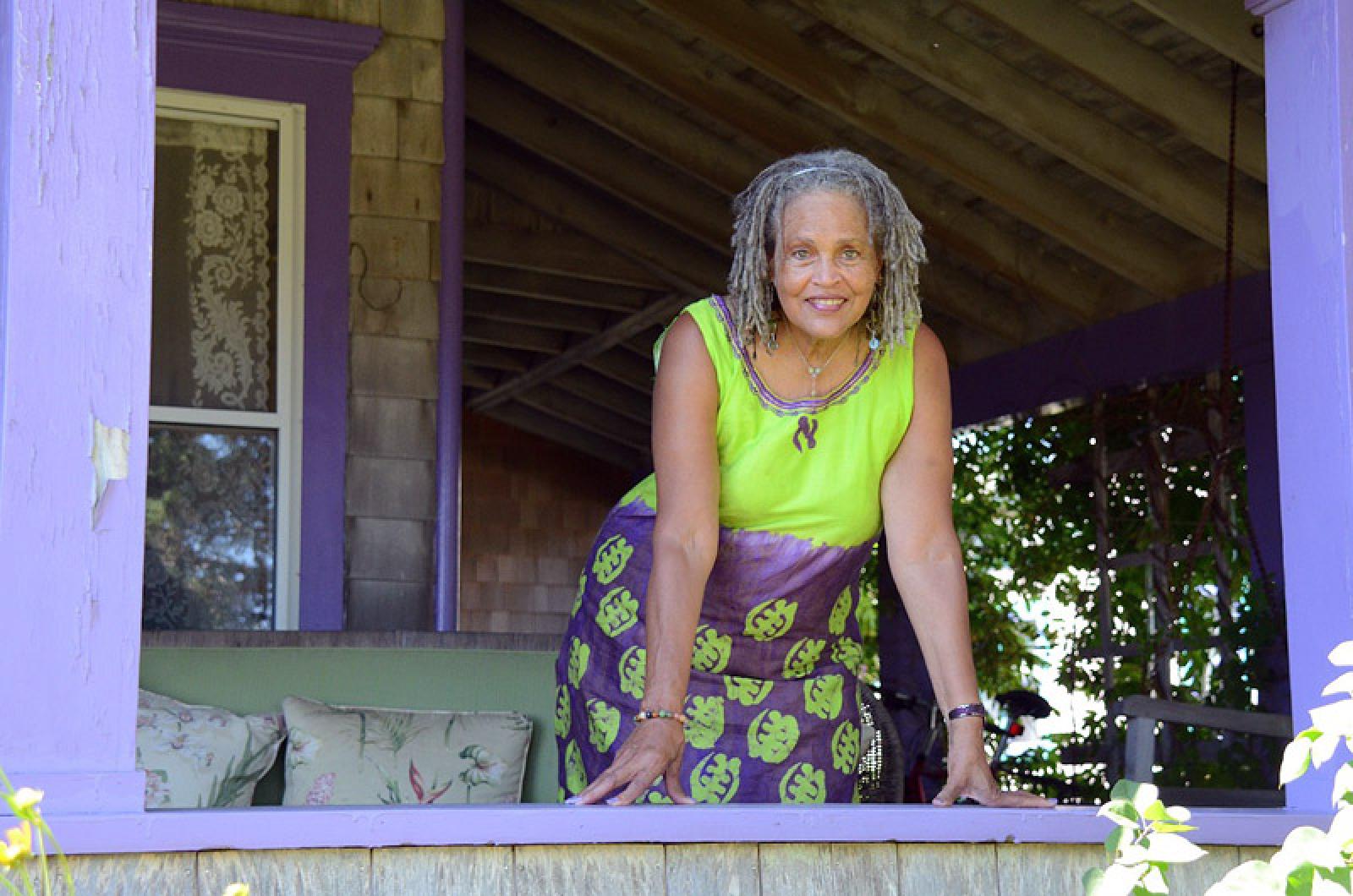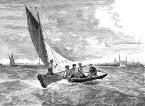Three years ago, with a grant from the Ford Foundation, Charlayne Hunter-Gault began speaking with experts around the country who could shed light on the problem of racism in America.
She had just returned to the United States from South Africa, where she was a foreign correspondent for PBS NewsHour, and where she said many of the same racial issues existed following apartheid.
Race Matters, a new PBS NewsHour series that grew out of her efforts since 2012, premiered Sept. 1. In the first official episode, Ms. Hunter-Gault speaks with Raj Chetty, a visiting professor at Harvard University, about how disadvantaged neighborhoods amplify racial inequality around the country.
Kids who move from high-poverty areas to low-poverty areas are 30 per cent more likely to go to college and will earn 30 per cent more as adults, Mr. Chetty said in the conversation. But black people are more likely to live in low-income areas, which amplifies racial divisions.
Other episodes will likely explore media, education and entertainment in the context of race, along with microaggressions (subtle forms of discrimination) on college campuses, the rise of hate groups, and what responsibilities black communities have to address racism.
“When the incidents go away, the media and people in general tend to turn their attention to other things.” Ms. Hunter-Gault said in a conversation with the Gazette last week. “And yet there is no question that this is one of the most enduring of America’s problems.”
A soft launch of the series earlier this summer featured a conversation with Charleston, S.C., mayor Joseph P. Riley just a few days after the murders of nine parishioners at the Emanuel AME Church. “We wanted to take advantage of the attention the story was generating,” Ms. Hunter-Gault said. But the series has a higher purpose than just making news.
“I’m under no illusions, and neither are the people I’ve interviewed, that we’re going to solve this problem,” Ms. Hunter-Gault said. “But there are areas where progress can be made.”
Most of her guests so far agree that progress will take both time and cooperation. By widening and deepening the conversations surrounding race in America, Ms. Hunter-Gault hopes to foster everyday dialog and help people become agents of change.
Each episode will feature a single conversation, edited for the NewsHour format. Two conversations were scheduled to be filmed last week in Washington, D.C., where the production team also planned to work out a schedule for the year. Ms. Hunter-Gault said that since the first two segments, her email inbox has been filled with encouraging emails.
“It won’t be difficult to do it even twice a month because we have so many people out there lined up to interview,” she added.
PBS has explored issues of race in the past, including a series following the beating of Rodney King in 1991, when Ms. Hunter-Gault was a full-time correspondent, and another in 2003.
“Here and there you have people doing things, but it’s episodic,” Ms. Hunter-Gault said. Race Matters aims to create a foundation for further conversation and lasting solutions. “So what I’m hoping is that people will follow this lead and own it themselves.”
The Race Matters webpage will feature each episode, along with articles and commentary, and opportunities for people to engage with the guests.
Ms. Hunter-Gault, who lives much of the year in Oak Bluffs, left her full-time television job in 2010, but still works on special projects, including coverage of Nelson Mandela’s final days for NBC, and segments on Mr. Mandela for the PBS NewsHour. She has written two books about her experience in the Civil Rights movement, and contributes to The New Yorker and other publications.
She regularly moderates the annual forums on the Vineyard hosted by the Hutchins Center for African and African American Research at Harvard. This year’s forum featured several young professionals exploring topics of race and leadership.
Race Matters will ideally involve people of all ages, races and sexes, and from all parts of the country, Ms. Hunter-Gault said. She hoped the topic of race would expand to include other forms of discrimination.
Part of the challenge and reward of working on the project, she said, has been the chance to keep learning about communication, even after a lifetime in media. Sometimes breaking through barriers can be as simple as telling a joke or using local pronunciations.
Humor itself is on the list of future Race Matters episodes. As a lover of jokes, “good, bad and ugly,” Ms. Hunter-Gault said she has learned through experience to identify the boundaries between harmless and destructive humor.
“I’ve learned as a victim of racism and sexism to be more sensitive,” she said. “And yet I’m a human being, so every now and then I’ll have a stereotypical view of something.”
Always examining her own views, she decided some time ago to never tell another ethnic joke, and to prohibit the use of the N-word in her house. She noted how often the word is used in comedy routines.
“If you can constantly repeat the N-word, does it diminish the negative impact?” she said. “I don’t think so, but let’s see what the expert says.”
She hoped the series would show how learning happens through experience and doesn’t always have to be pleasant. “People have to get out of their comfort zone in order to confront problems and then resolve them,” she said.
On the Vineyard, she said she’s seen considerable progress in communication between people of different ethnic and economic backgrounds. But beyond the summer forums and public discussions, she encouraged people here to be proactive in developing diverse friendships.
“If you’ve established friendly relationships, that’s when people can talk about things and not feel put upon or feel blamed,” she said. “I think we need a little bit more of that. We can have it in the churches. We can have it in the schools.” She hoped the Race Matters series would culminate in a study guide for students at all levels.
About 200 people recently attended a memorial service for Julian Bond, a civil rights pioneer who died in August, most of them having heard about it by word of mouth. “That’s what happens in a village,” Ms. Hunter-Gault said, adding that the Vineyard’s small year-round population could be an asset for discussing race issues, and could provide a stronger foundation than just the summer forums.
“There are plenty of people right here who know enough about history and who are committed enough to try and change things,” she said. “You don’t need some expert to come in here and do it. They can do it themselves.”






Comments (1)
Comments
Comment policy »